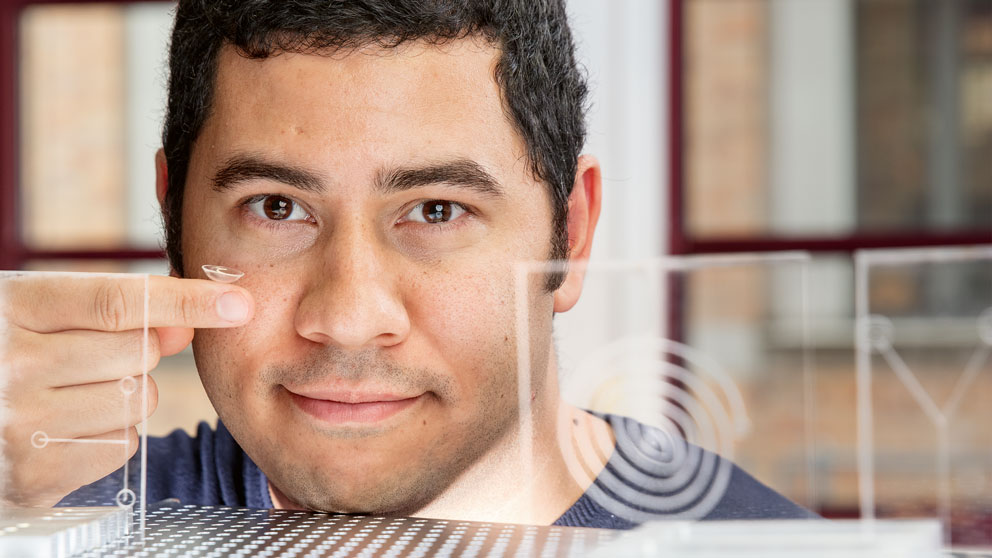Jump to the content
- {{#headlines}}
- {{title}} {{/headlines}}

Dr Ali K. Yetisen from Harvard University, USA, is a Humboldt Research Fellow at the Technical University of Munich.

The method makes use of the fact that tear fluid, just like blood, contains a raft of biomarkers, that is, substances like glucose or electrolytes, the concentrations of which give an indication of our state of health. “In addition to diabetes, they also indicate glaucoma, for example, and other eye disorders. Weaknesses in the kidneys and liver can also be detected at an early stage,” says Yetisen. But how do you access the tears? Yetisen’s solution involves special, laser-treated contact lenses: tear fluid is collected via minute channels in tiny cavities. “They are at the lower edge of the lens outside the field of vision,” the researcher explains. In these tiny structures, the fluid is subjected to a series of tests during which certain substances change colour according to the concentration of the various biomarkers. It works similarly to the test strips you use to check on water quality. The intensity of the colour indicates the biomarker content. The entire measurement is taken without resorting to electronics. Only the colour analysis is done by a smartphone app after the patient has taken a photo of the lens in his or her eye.
Yetisen has already proved that the method works. It will take several more years, however, until you can buy contact lenses like these. “Before they can be licensed they will have to undergo many more safety tests and clinical studies.”
aus Humboldt Kosmos 109/2018
